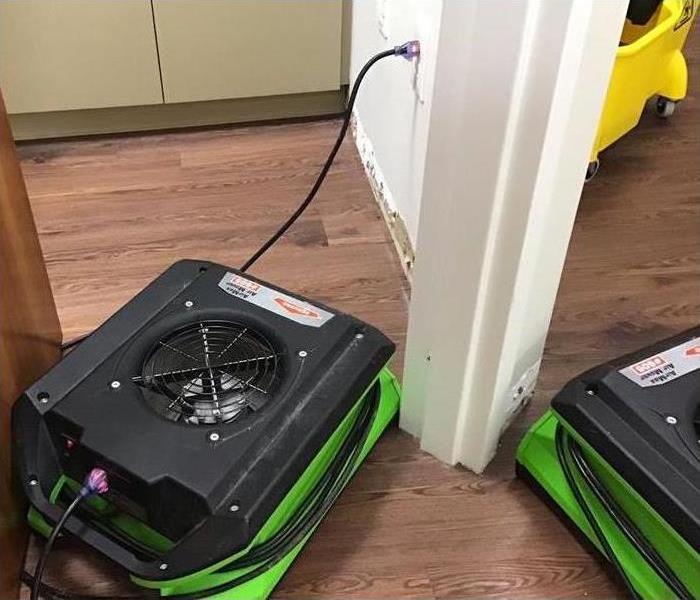3 Common Types of Fire Damage
4/29/2021 (Permalink)
Three Types Of Damage Caused By Fires
One of the reasons that fires tend to be so destructive and expensive to recover from is that they usually cause multiple types of damage, requiring a variety of restoration services, such as water cleanup. These are three types of damage commonly caused by fires.
1. Smoke Damage
Almost all building fires generate a substantial amount of smoke, which can permeate structures and contents causing damage such as odors and stains. Smoke cleanup is often required to completely remove lingering smells and prevent additional damage. When smoke isn't completely removed, odors can persist for months or even years after a fire. Additionally, smoke residue can act as a corrosive agent, causing structures to deteriorate over time.
2. Water Damage
Water is an essential component of any attempt to put out a commercial fire. Most commercial buildings employ sprinkler systems, which can greatly reduce the spread of fires, but also cause substantial water damage to the building and contents. In addition to repairing the affected property, it is important to quickly employ water cleanup services to dry out the property. Otherwise, the excess moisture can cause additional damage and lead to other problems such as mold growth.
3. Fire Damage
The most obvious type of damage is the damage caused by the flames themselves. Fire can rapidly destroy the structural integrity of a building and cause severe damage to any property or inventory stored inside. The debris left behind often requires extensive fire cleanup. In some industrial settings, fires may cause explosions or the release of hazardous chemicals, making it important to immediately contact emergency services in Doylestown, PA.
Businesses need to be prepared to deal with more than just damage from flames when making fire preparation plans. Smoke and water cleanup may also be needed to fully restore the property to preloss condition and prevent additional damage from occurring to the property.





 24/7 Emergency Service
24/7 Emergency Service
